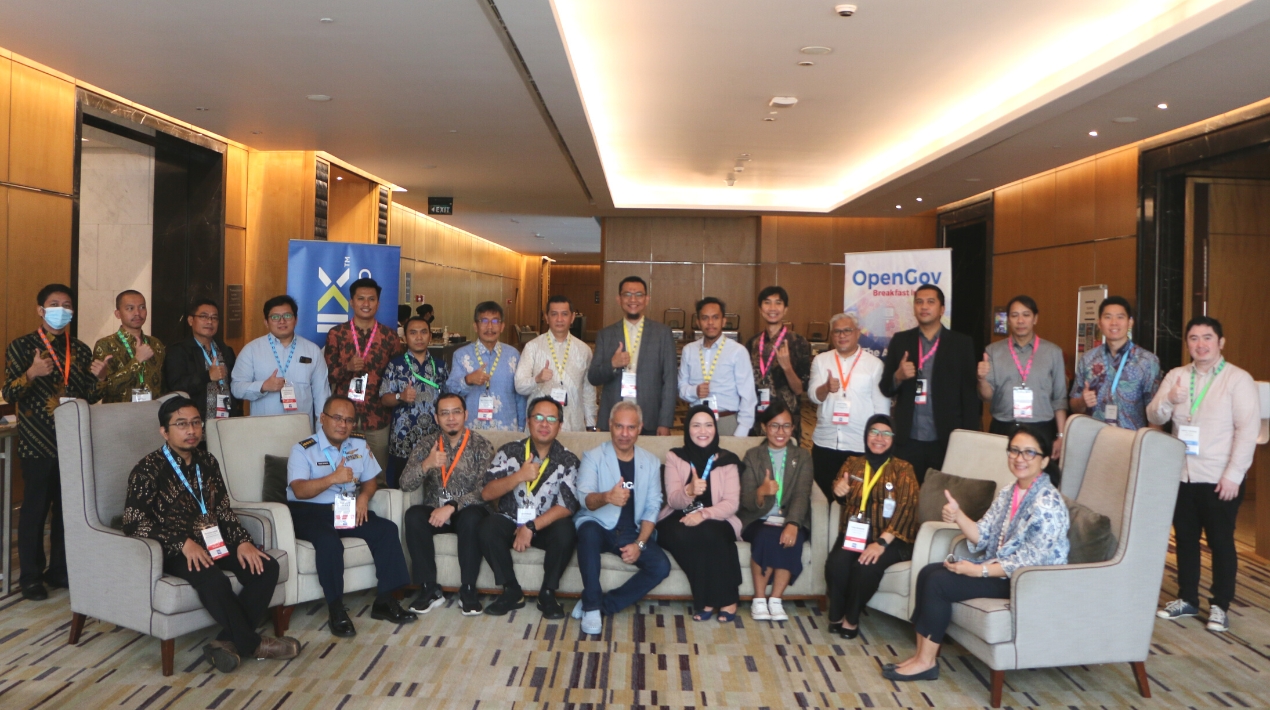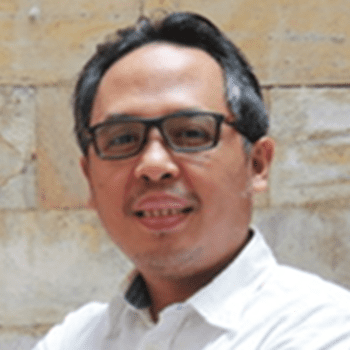
Having acknowledged the importance of data and analytics for a long time, Indonesia developed a data strategy – the Satu Data programme. The initiative was launched to create an easily accessible data-sharing platform between national and regional agencies.
Management and teams from the private and public sectors need capable technology to collect, classify, combine, and analyse data to make timely decisions from siloed and unstructured data.
However, integrated, connected, and related data is only an asset if it is accurate, easy to use, clean and trustworthy. Data must be in the correct place with protocols and systems to offer accurate, current, integrated, and reliable information.
Proper administration enables individuals to track, manage and make decisions effortlessly. Security must also be implemented to ensure that reliable and valuable insights can be extracted in a reasonable amount of time.
Cutting-edge developments, aided by the cloud, present an opportunity to leverage data to its fullest extent and to improve the user experience. With the proper technology configuration, services and profitability may be enhanced, adaptability and scalability can be increased; and teams can respond more swiftly and securely.
The OpenGov Breakfast Insight with Indonesia’s top public sector officials on 15 February 2023 at the Westin Hotel delivered up-to-date information on cloud systems and cloud-based technology adoption.
Opening Address

Indonesia aspires to be the fifth largest economy in the world. To do so, the country must transform, Mohit Sagar, CEO and Editor-in-Chief of OpenGov Asia, emphasises. However, digital transformation cannot be accomplished by replicating what has succeeded in other parts of the world. It is critical to customise adopting any technology and digital platforms or solutions.
“Transformation does not mean imitating the next person by claiming if they can do it, we can do it,” is his caveat.
As an example, Mohit cites how medication for depression can have differing effects on patients in the United States and Asia.
“They developed a legitimate therapy for depression, which means we can place something on your head to stimulate certain portions of your brain, but when they transplanted that entire system to Asia, it failed. Why? Because our brains are wired differently. That means they had to re-calibrate the regimen for us (Asian),” he explains.
Ultimately, customisation is required since each organisation, public or private, has a unique requirement. As a result, one approach that works well in some countries may need to be revised when deployed in others.
Welcome address

When it comes to constructing digital infrastructure, new governance is required. Johanes Andria, Sales Enterprise Lead, Nutanix Indonesia, highlights the necessity of resilient information technology infrastructure.
The Indonesian government has prepared the blueprint for the rapid digitalisation plan through four strategic sector pillars: digital infrastructure, digital society, digital economy, and digital government. Technological infrastructure improvements must be carried out to meet expectations by building on these pillars.
Indonesia prioritises digital infrastructure as digitisation could only succeed if there was supporting infrastructure. As a result, the government is assisting with the 4G BTS development project to expand internet connection in remote areas via the BAKTI Kominfo, One Data Indonesia, and Peduli Lindungi initiatives, among others.
The pandemic has accelerated digital advancement by 5 to 10 years. It has compelled all industries to become more reliant on technology and the government to hasten the delivery of citizen services digitally. This means there is a great need for digital literacy for all sectors of society – including the elderly and communities in hard-to-access areas.
Johanes emphasised the importance of adopting a robust and flexible IT infrastructure to match digital transformation projects involving electronic-based systems, Big Data, ML, and AI.
“Utilisation of data to provide digital services to the public requires high availability, reliable and flexible infrastructure. Legacy infrastructure that has been available for the last 10-30 years is out of date, and it is difficult to catch up with the government’s digital transformation blueprint,” Johanes explained.
In Conversation with: Mastering the Digital Economy, Creating Key Digital Solutions

Eka Putuasduki, an IT Expert on Architecture and Planning at the Ministry of Trade’s Center of Data and Information Systems, stressed the significance of balancing uniformity with room for innovation.
During the pandemic from 2021-2022, the Ministry of Trade frequently collaborated with the Ministry of State Apparatus Empowerment and Bureaucratic Reform (KemenPANRB) to coordinate various standards for implementing the Electronic Based Government System (SPBE).
“SPBE may either foster or stifle innovation. Standards for business process connectivity are required for the SPBE architecture. However, if all of the SPBE requirements (from KemenpanRB) are fully adopted, probably, Pedulilindungi and InaTrade have yet to be deployed as they are limited by clearance,” he emphasises.
However, because the KemenPANRB eventually relaxed the SPBE rules, the two government applications could be rolled out immediately during the pandemic. Nonetheless, Eka believes that governance through uniformity is critical because architectural arrangements can ensure the dependability of applications or services.
Be that as it may, it is almost inevitable that innovation will clash with governance. Governance will establish norms that must be followed, whereas innovation needs space. To connect these two points, the Ministry of Trade decided not to limit innovation, but once the service was running, it required to be aligned with standardisation.
“People must be adaptable to move about, seek innovation, and adhere to the agency’s business operations,” he is convinced.

Arief Pribadi, Technical Director, Nutanix Indonesia, underlined the need to work with people and processes when discussing digital transformation. Arief believes that changing the process will be the most challenging problem of the two.
“If there are internal issues, digital talent can come from a third party or an expert from outside. However, I regard the process as a tremendous challenge for the administration.”
The problem occurred because the government was previously divided into sections and operated independently. However, there has recently been a breakthrough in working in government. Even if structural pillars still separate them, an initiative has been launched to bring all departments together at one table to collaborate on the same topic.
“Previously, Kominfo or Pusdatin had several pillars, apps, data centres, governance, and so on. Typically, one pillar runs the programme first, then they proceed to the other when they need to install it, and when something has happened, they proceed to the security department. This must be tweaked,” Arief feels.
He proposes a scrum-agile development method to address this structural issue. The scrum team must include all stakeholders from the front end, back end, data management, data analytics, and so on. Therefore, each side can contribute based on their insights.
In terms of personnel, Arief emphasised the need for a digital leader. These executives can bridge the gap between governance and innovation. This person is also responsible for driving and advocating for digital initiatives to become vital to implement so that execution continues.
Closing Remarks
Johanes underlined data management and application modernisation as two main problems in government. Another thing that he noted in managing IT infrastructure is the speed of data processing. if it takes too long to process data, the value and insight that can be obtained can either be reduced or lost.
Mohit wholeheartedly concurs. Data availability in a fraction of a second has become a customary request. The tremendous demand for services anytime, anywhere, on any device is a critical challenge that must be handled. Unfortunately, legacy infrastructures can be a roadblock to transformation and progress. To achieve this, critical cognitive infrastructure is essential for efficient data storage.
“Genuine hybrid multi-cloud strategy needs to be deployed. Why? It’s to fulfil the requirement for the outcome. If you see the transformation taking place and help with data-driven decision-making, it will help your organisation thrive. Let’s look at the Nokia example. The no 1 in the world disappeared. Because they did not look at data,” Mohit elaborates.
According to Johanes, updating the system can speed up data processing, improve data management, and facilitate application modernisation. The current legacy system has yet to be able to respond quickly to all needs.
“Old infrastructure can no longer be kept up with the government’s digital transformation plans going forward,” he stated.
In summary, digital transformation is intrinsically and inextricably linked with supporting infrastructure. If countries are to achieve their digital ambitions, they must put the right systems and infrastructure into place and parallelly work with people, processes and policy.
















